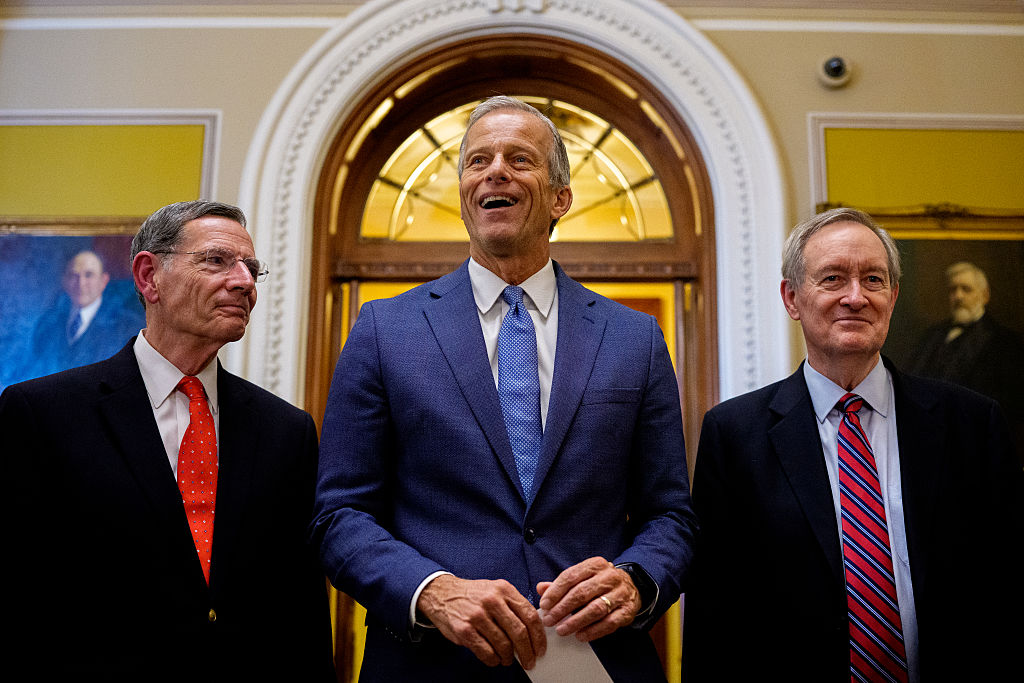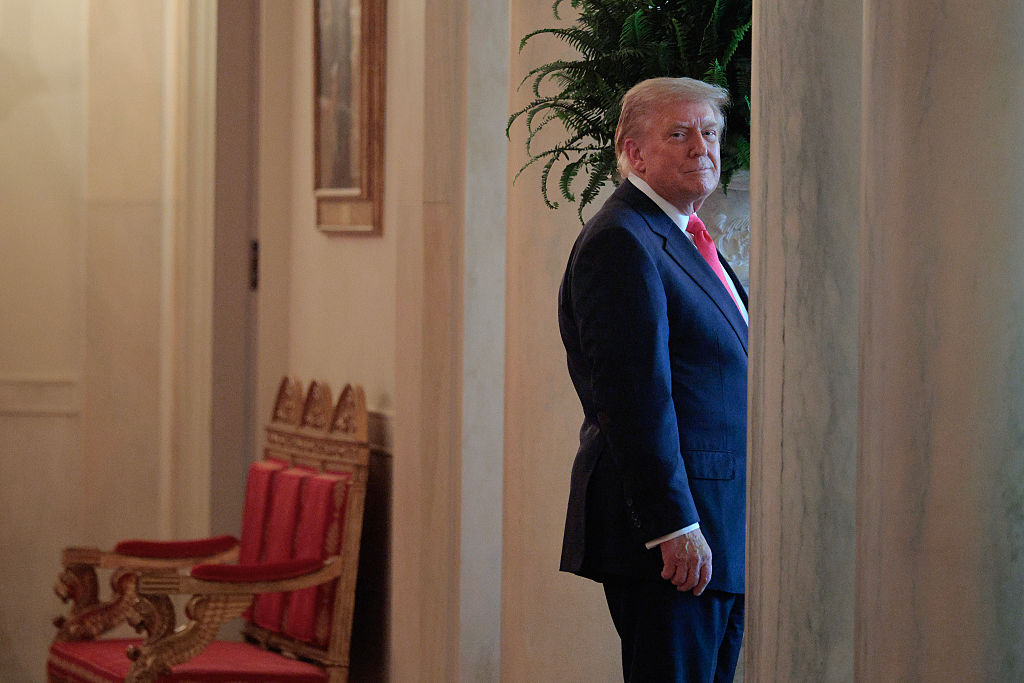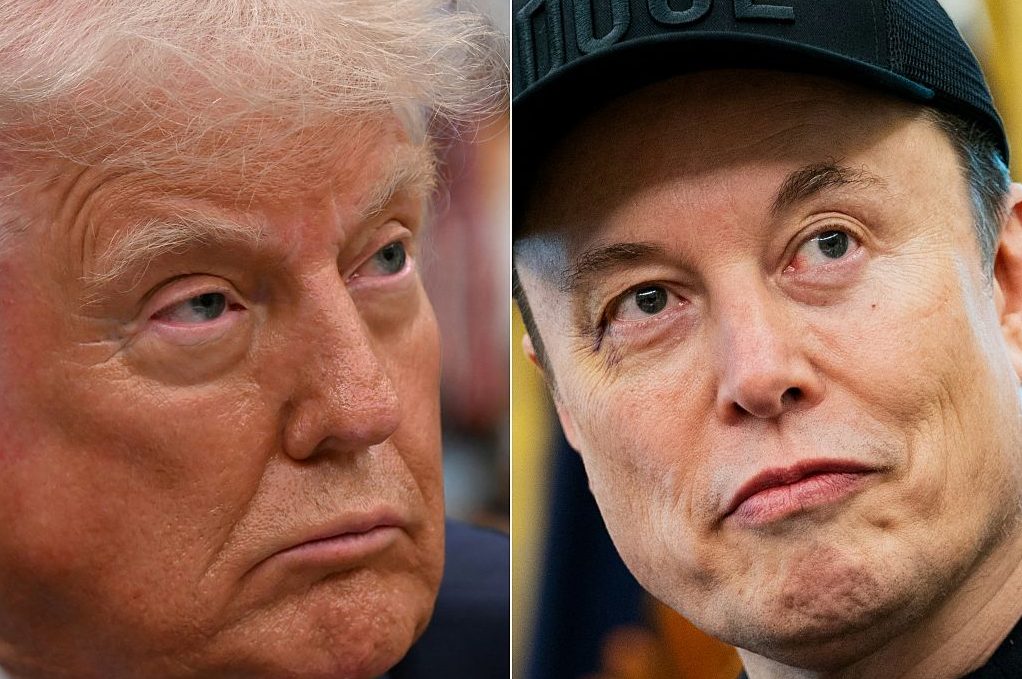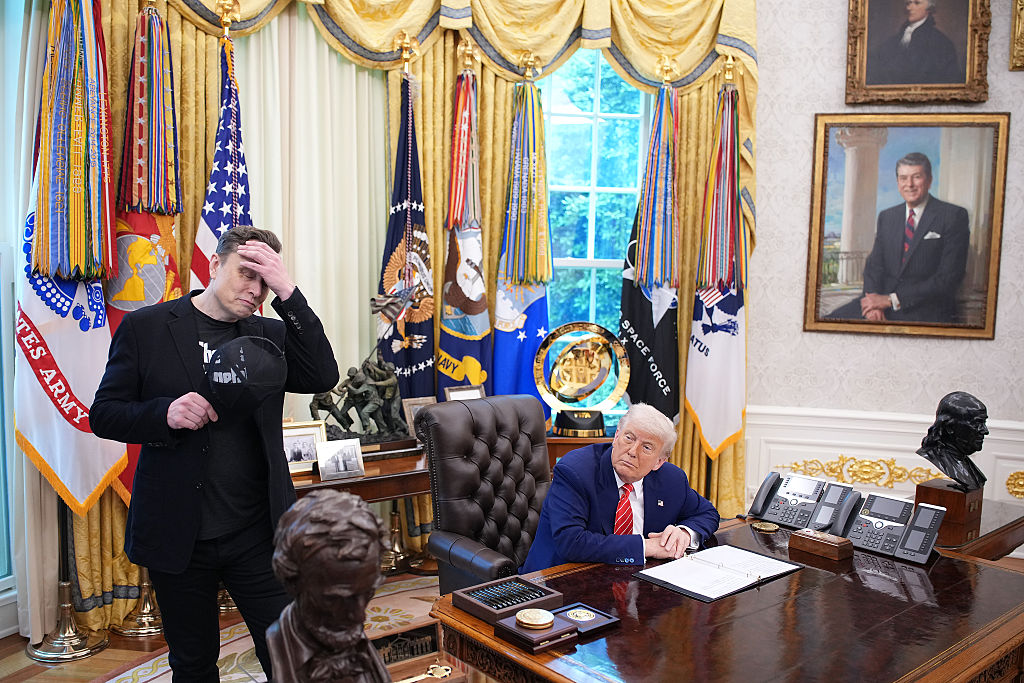In the waning days of 2023, the last weeks of the before-time — the moments before the Republican Party would inevitably crown the once and future king who rules upon high from Mar-a-Lago — the billionaire donor class of the Republican Party decided en masse that it would endorse a candidate in a final desperate attempt to block Donald Trump. They settled on Nikki Haley, the erstwhile South Carolina governor turned United Nations ambassador, whose star had risen oh-so-very slightly in early state polling, if you squinted hard enough. She would be their choice for a last stand against The Donald Redux, whose return they publicly claimed to fear and loathe as a threat to democracy while privately admitting they would unanimously support him. The question is: why?
Like Libya in Bart Simpson’s model UN report, Haley is a study in contrasts. On paper, she ought to have a stronger appeal to the hard right and fiscal conservatives — but today, her base is among the party’s moderates, suburban women and those least likely to find appeal in the populism of Donald Trump and Florida governor Ron DeSantis. At the UN, she was known as a down-the-line defender of the America First Trump foreign policy — but now, she’s effectively viewed as the last candidate of the George W. Bush era neocon agenda, even accused by some critics of being a war profiteer. At the same time, she’s become the candidate of a billionaire class that is ideologically at odds — it’s a rare thing indeed to see the Koch-backed Americans for Prosperity, Home Depot founder Ken Langone and Democratic donor Reid Hoffman all backing the same candidate.
Yet if it’s easy to see in retrospect why the donor class wanted to back Haley, why do it at a point when all their money and endorsements are essentially meaningless? If you had doubts about DeSantis and thought him too extreme on issues like abortion and the transgender agenda, or opposed his use of government power in culture-war brawls with entities like Disney, Haley seems like the obvious alternative. But if she checks all the boxes for the billionaire priorities — a pro-business tax agenda, a moderate line on culture-war fights, a return to traditional Republican hawkishness — why move so late in the game? Is this just another example of very rich people throwing money at very dumb projects in a vain attempt to block right-wing populism? Or is it just a signal about where they want the party to go, a performative “we tried to tell you” last-ditch attempt to revise the history of the 2024 cycle in anticipation of a Trump defeat and a post-election party reset?
Haley rose in 2010 as a hardline fiscal conservative state representative challenging the corrupt South Carolina old boys’ club; her dark-horse candidacy against a crew of indistinguishable white males in charcoal suits was boosted by then-Tea Party heroine Sarah Palin. The dirty tricks efforts to block her took on a particularly South Carolinian nature when her former campaign manager, a balding weirdo named Will Folks, announced that his Christian faith and dedication to truth and rightness required disclosing a tawdry affair he had with the candidate. As then-Politico scribe Ben Smith described him, “the state’s most prominent political blogger was lounging in his home office… a rangy, goateed thirty-five-year-old dressed this day in red basketball shorts and plastic Adidas sandals,” doing his best to disrupt a rising star — but it backfired. Instead of sinking Haley’s candidacy, the nearly universal disbelief in his story turned Haley into an overnight phenomenon. She trounced the old guard and won the primary and the general, making her instant fodder for the national media as a minority governor in the red-state south.
As governor, Haley’s record was mixed for the hardcore conservatives who had initially backed her as a follow-up to Governor Mark Sanford, of “Appalachian Trail” fame (and one of the great presidential campaigns that never was). But she displayed an acumen for handling public relations challenges and real crises, becoming perhaps best known for her stance in favor of removing the Confederate battle flag from the capitol grounds in Columbia after the murder of nine black churchgoers at Charleston’s Mother Emanuel AME Church. Fifteen years after skittish white Democrats struck a deal to keep the flag flying, she brought Strom Thurmond’s son to her side to take it down. That mattered in the South. It still does.
A year later, Haley — nearing the end of her second term and regularly mentioned as a vice-presidential possibility — was one of the last holdout advocates for Florida senator Marco Rubio’s candidacy as it crashed and burned in a sea of overpaid consultants who would inexplicably be rehired the next cycle. An image of her dressed in a politician-appropriate St. John suit, flanked by Rubio, Representative Trey Gowdy and Senator Tim Scott at a February event in Greenville was touted as an image of the alternative to Trump — a multiracial next-gen Avengers team-up. It was tailor-made to appeal to the donor class of a Republican Party desperate to win over the youngsters.
The only problem was it wasn’t what Republican voters wanted. In the primary, Trump carried South Carolina easily. Rubio got 22.48 percent of the vote, just squeaking by Texas senator Ted Cruz for second place, netting zero delegates and effectively ending his campaign. Now Haley is trying to avoid the same result — but her poll numbers in her home state show she’s in almost the exact same place.
The hope of her late-stage big money backers is that a surge of cash can get Haley a “shock the world” win on February 24, positioning her as the only true alternattive to a Trump renomination. But this late in the game, it’s hard to see how that cash can make much of a difference. As one Republican consultant (unaffiliated with any presidential campaigns) put it to me, “Republican donors do the right thing too late all the time, and they falsely think money — even late money — can buy anything.”
The dynamic, according to multiple consultants in and out of current campaigns, is that billionaire money on the Republican side doesn’t plan ahead for the long game as effectively as Democrats. The Republican donors invest in proven products who confirm their prior assumptions instead of investing early and dispassionately and taking risks on new ideas. It explains why donors bought Jeb Bush stock in the 2016 cycle, why so many have leaned toward Mike Pence or the establishment-friendly Tim Scott over Haley this time, and why they held out fairytale hopes until the last minute that Virginia’s Glenn Youngkin, Georgia’s Brian Kemp or New Hampshire’s Chris Sununu could be convinced to jump into the race.
“The cheat code for figuring out which Republican will win the nomination is to see who the billionaire class is backing and cross them off the list,” said one consultant. “They are dumb, they don’t get politics and they are reliably wrong.”
It’s simplistic to read 2024 as a sequel to 2016, with Haley as Rubio and DeSantis as Cruz, but not entirely wrong. The populist conservative forces that took over the Republican Party in the past decade are in the middle of a disagreement not about what direction to go, but who is best to take them there. The majority believe Trump is still the one; a decreasing minority believe DeSantis is a more effective option; and that leaves roughly a fifth of the party, who never liked Trump or grew to find him distasteful, searching desperately for someone, anyone, whose sign in their front yard won’t lead to feuds with their neighbors.
Nearly all the big-dollar donors in the GOP are in that 20 percent. But when they weigh in on politics, their attitude comes across as hopelessly naive. Many seem to long for the pre-Barack Obama days, where they thought that if only the party nominated a competent generic Republican, the press would give this fictional candidate a fair shake. Republican voters were disabused of that notion: they watched as John McCain and Sarah Palin, then Mitt Romney and Paul Ryan, were all treated like dangerous fascists as soon as they became the party’s nominees. Much as some in the media pretend to miss these figures now, voters remember the distorted photos from the Atlantic photographer, the Candy Crowley interruption and that image of Family Guy’s Stewie Griffin in a Nazi uniform wearing a McCain-Palin pin as Third Reich flair.
In Republican politics, it seems only the big money donors still have some fantasy that this anodyne yet thrilling candidate exists somewhere. Voters know that as soon as you’re an actual threat to win, even the friendliest media changes. Haley experienced this herself at the end of December, when she found herself answering the type of random question one gets at a town hall in Berlin, New Hampshire: “What was the cause of the United States Civil War?”
“I think the cause of the Civil War was basically how government was gonna run, the freedoms and what people could and couldn’t do,” Haley said, before asking the voter what he believed caused the war. When he declined to answer, she followed up: “I mean, I think it always comes down to the role of government and what the rights of the people are.” When the man expressed frustration that Haley made no mention of slavery, she responded: “What do you want me to say about slavery?”
The media, which had largely held back on criticisms of Haley’s candidacy, ate this up — turning it into one more example of Republican racism, or more cravenly suggesting that Haley thinks mentioning slavery as a cause of the Civil War would offend GOP primary voters. What should have been a minor flub — a candidate unprepared to answer an unexpected question — was turned into a multi-day story, with Haley forced to spend multiple appearances defending herself on something completely off-topic from her campaign. And of course, precious few of the segments speculating on Haley’s latent racism bothered to include the fact that it was Haley who finally brought down the Confederate flag at South Carolina’s statehouse in 2015.
The right hasn’t expected fair news coverage for a very long time. This episode encapsulates why voters choose someone like Trump, who understands every interaction with the media as a brutal contest where only one side can win, over a candidate like Haley who still plays by the old-fashioned rules. You can see it reflected in a 2012 New York Times interview, where Haley admitted something you can’t imagine any ambitious Republican saying today: “The reason I actually ran for office is because of Hillary Clinton… She said that when it comes to women running for office, there will be everybody that tells you why you shouldn’t, but that’s all the reasons why we need you to do it, and I walked out of there thinking, ‘That’s it. I’m running for office.’” You can put money on Trump using that quote the instant Haley is a real threat.
There is at least one candidate who did seem to understand how the rules have changed before he got into the race: Ron DeSantis. But a series of poor choices, driven by many of the same factors that elevated him, turned a candidate who once looked like the ideal of a competent conservative governor into anathema for the donor class. In a populist party where smaller dollars increasingly rule within primaries, the temptation to appeal to hot-button issues that drive social media engagement is real. DeSantis’s effort, driven by an extremely online campaign staff and a super PAC badly botched by Cruz veteran Jeff Roe (who resigned in December), managed to squander the governor’s broad agenda, reducing his campaign focus to a narrow list of divisive culture-war issues.
There’s an alternate version of the DeSantis campaign, according to some election analysts, that could have carried his incredible 2022 momentum in Florida into the cycle, but it never showed up. “That version of him could have had a $500 million Super PAC and we might be having a different conversation today,” one pollster told me. “I’ve never seen a candidate with that potential do so much to deliberately repel potential donors and endorsers.”
So that leaves the donor class, having learned nothing and forgotten nothing, with their last desperate hope: that Nikki Haley can pull off a monumental upset in a minimal amount of time and upend the political trajectory of the Republican Party. They’re still hoping against hope for a return to the before-time, of that pleasant image in Greenville of a multi-ethnic, younger, business-friendly GOP. But even with a candidate who looks good on paper, backed by all their dollars and endorsements — in the political climate of the moment, it looks like a dead parrot pining for the fjords.
This article was originally published in The Spectator’s February 2024 World edition.























Leave a Reply